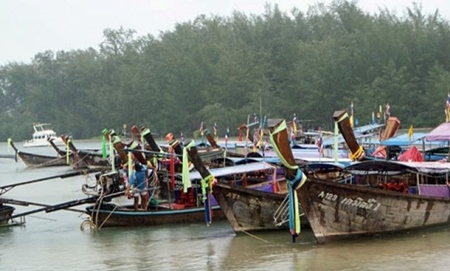BANGKOK, June 7 – The Gulf of Thailand and other Thai offshore waters face an ecological crisis as fish stocks have rapidly depleted due to commercial overfishing and the law cannot control the practice effectively, according to a civil sector seminar held by Greenpeace.
A Greenpeace representative said the tumbling total population of fish and other sea animals resulted from overfishing beyond the balance rate of 90,000 tonnes per year. Local fishermen’s average catch per hour dropped from 300 kgs in 1961 to 25 kgs currently while some species like white pomfret, Indo-Pacific Spanish mackerel and long tail tuna have become very difficult to find.

The diminishing fish stocks are also caused by improper or illegal fishing gear such as push nets and trawl nets, which carry away all sea life, even small fish for ground fish factories or animal feed production.
Large fishing vessels account for an increasing percentage of the Thai fishing fleet, rising from 20 per cent to 40 per cent in a recent test period. The larger vessels can sweep 90 per cent of the fish stock for an ocean area, while traditional fishing boats can catch only 10 per cent. Such a ratio leads to unfair marine resource distribution.
The 1947 fisheries law was amended but it has yet to be enforced effectively, so the Thai sea crisis continues, the seminar was told.




